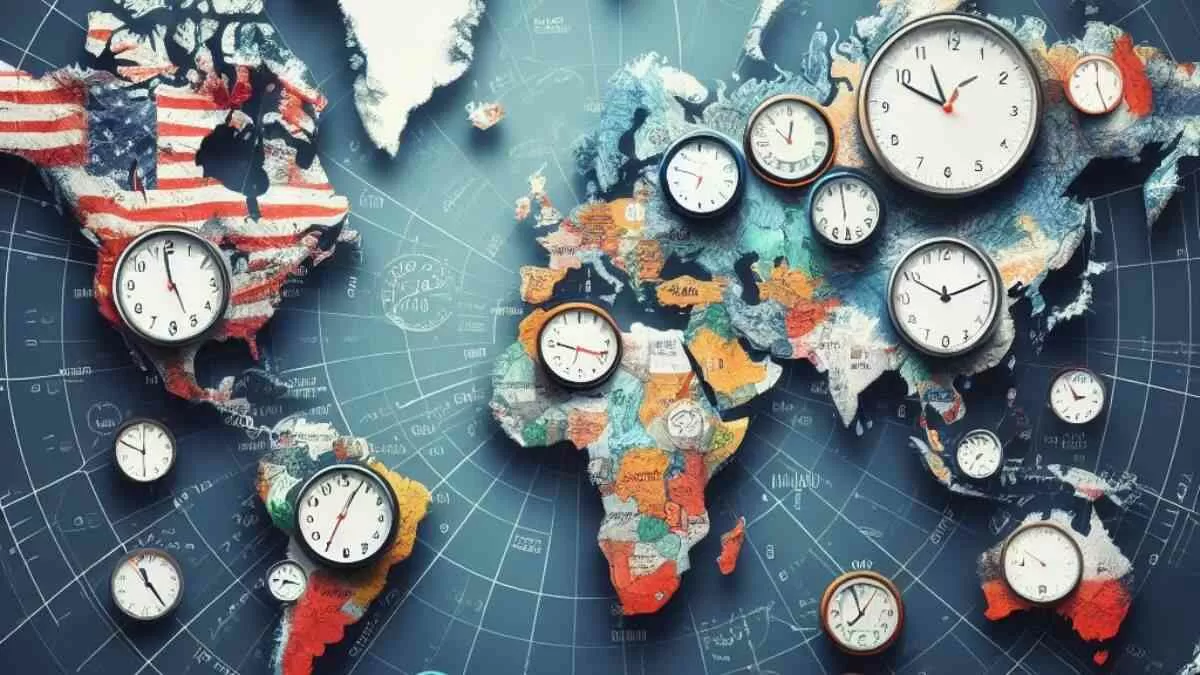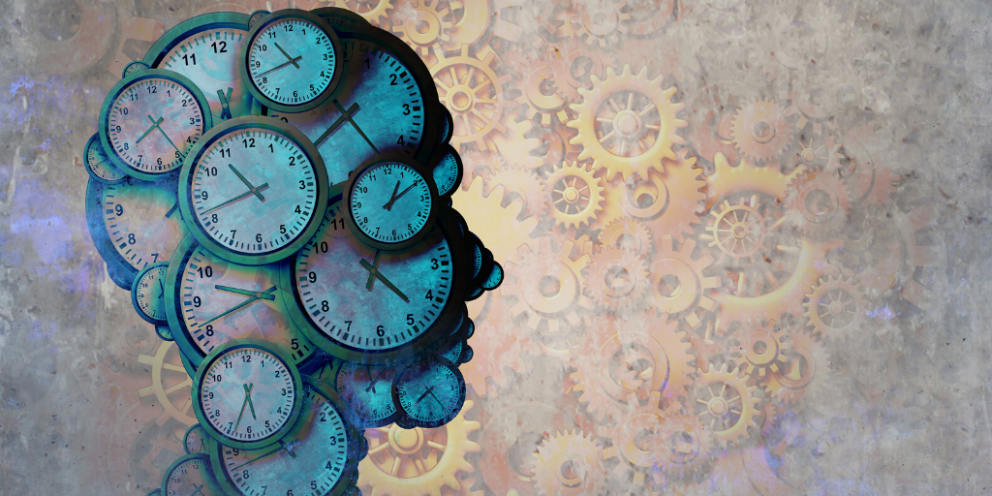Time: Exploring Its Infinite and Absolutely Fascinating Nature

The concept of time has long captivated human curiosity, with philosophers, scientists, and thinkers pondering its essence and implications for centuries. Duration, an intangible yet ubiquitous element of our daily existence, commands an enigmatic presence that prompts profound reflection and exploration. The infinite nature of Duration poses compelling questions about its role in our understanding of reality, existence, and the universe’s grand design.
Recent years have witnessed a resurgence in the philosophical discourse surrounding Duration, driven by advancements in physics, technology, and interdisciplinary studies. This article seeks to provide a comprehensive exploration of the contemporary understanding of Duration and its infinite nature, delving into recent philosophical and scientific updates and offering insights into this fundamental, yet elusive, aspect of existence.
The timeless inquiry into Duration encompasses myriad questions: Is Duration an independent entity or a mere construct of human perception? Does the notion of past, present, and future hold any absolute truth, or are these merely subjective delineations? By examining these inquiries through the lens of contemporary philosophical and scientific developments, this article endeavors to elucidate the intricate tapestry of Duration and its infinite essence. We will journey through recent contributions from various intellectual disciplines, providing a structured examination of how current theories and findings are reshaping our understanding of time’s inexhaustible nature.

The Evolution of Duration in Philosophical Discourse
Ancient Philosophical Views on Duration
From the annals of ancient philosophy, Duration has been a pivotal subject encompassing diverse schools of thought. Aristotle, for example, posited Duration as a measure of change and believed it intrinsically linked to motion. He argued that without the chronology of events, Duration would cease to exist, suggesting a dependence on physical phenomena. Contrastingly, early Eastern philosophies, such as those found in Hinduism and Buddhism, proposed a cyclical understanding of Duration. They viewed existence and time as a continuous loop, devoid of a distinct beginning or end. Such perspectives have undeniably influenced the modern philosophical exploration of Duration.
Medieval to Enlightenment Perspectives
Throughout the medieval period, Christian doctrines permeated philosophical interpretations of Duration, often drawing on Augustine’s assertion of Duration being a human construct rather than an absolute entity. As the Enlightenment ushered in a wave of rationality, philosophers like Immanuel Kant proposed a revolutionary perspective, demarcating Duration as a fundamental aspect of human cognition. He argued Duration and space to be intuitive forms necessary for human perception of reality. These profound assertions laid the Yowestogel groundwork for subsequent scientific inquiries and influenced perceptions centuries forward.
The Transition to Contemporary Philosophy
Modern philosophy has seen a profound shift towards existential and phenomenological reflections on Duration. Influential thinkers, such as Martin Heidegger and Henri Bergson, have stressed the subjective experience of Duration. Heidegger’s concept of “being-in-Duration” posits temporal awareness as fundamental to human existence, while Bergson’s notion of “duration” emphasizes time’s qualitative aspect beyond quantitative measurement. The melding of existential interpretations with technological and scientific advancements provides fertile ground for ongoing philosophical debates about Duration’s infinite nature.

Scientific Perspectives: Bridging the Gap
The Role of Physics in Understanding Duration
Physics has played an instrumental role in shaping contemporary understanding of Duration. Einstein’s theory of relativity upended traditional Newtonian views, introducing the concept that time is interwoven with the spatial fabric in a four-dimensional construct known as space-time. Duration, once thought to be a constant, was now recognized as relative, varying with the observer’s velocity and gravitational field. This relativistic perspective has deep implications, suggesting the potential for Duration travel under certain conditions, and raises significant philosophical inquiries about time’s relative nature.
Quantum Mechanics and the Flow of Duration
The advent of quantum mechanics has further revolutionized time’s philosophical and scientific considerations. Unlike classic deterministic systems, quantum phenomena embody probabilistic outcomes, posing challenges to traditional temporal concepts. Quantum theories, like the “block universe” view, propose that all of Duration is equally real, eliminating the distinction between past, present, and future. This seems counterintuitive to common experiential flow, prompting philosophers and physicists alike to ponder Duration’s fundamental makeup and seek a unified theory that reconciles relativity and quantum mechanics.
Technological Duration: The Digital Revolution
Technological advancements have created new dimensions in the philosophical exploration of Duration. The digital revolution has accelerated perceptions of Duration, compressing communication and reducing spatial constraints, effectively creating instantaneous global connections. These changes raise questions about chronobiology, wherein biological rhythms are altered by technology, and whether such shifts could eventually change human temporal perception or cognition. The artificial intelligence epoch further adds layers, as machines capable of processing epochs worth of information in fractions of a second challenge our organic temporal frameworks.
Time’s Role in Human Experience
Temporal Perception and Cognitive Science
Recent studies in cognitive science have elucidated how humans perceive and process Duration. Duration perception is intricately linked to various brain functions, including memory and attention, illustrating a subjective dimension to Duration that diverges from objective measurement. Neuroscientific research demonstrates how temporal perception can be influenced by sensory inputs and psychological states, revealing a flexible yet profound relationship between human consciousness and Duration. This knowledge provides a basis for understanding the dynamic interplay between an individual’s temporal experience and overarching philosophical theories.
Cultural Interpretations of Time
Duration is perceived and valued differently across cultures, testament to its diverse philosophical interpretations. While Western societies often embrace linear time as a commodity that must be capitalized, many indigenous cultures view Duration as circular, embedding their existence within regenerative cycles of nature. Recognizing these varied conceptions underscores the complexities in forming a universal understanding of Duration’s infinite nature. It challenges philosophical and scientific communities to integrate these perspectives in multidisciplinary dialogues about time.
Personal Identity and Temporal Continuity
The relationship between personal identity and the continuity of Duration remains a central philosophical question. How does temporal continuity affect an individual’s sense of self? Philosophical positions, such as those espoused by Derek Parfit, question the traditional notions of identity over Duration, suggesting degrees of psychological connectedness rather than fixed personal essence. By unraveling how Duration interlinks with personal identity, we comprehend the implications of temporal disruption, such as that caused by memory loss or futuristic simulations, on notions of self.

Implications of an Infinite Nature of Duration
Theoretical Models and Cosmological Views
Emerging cosmological theories offer varied insights into Duration’s infinite nature. Models like the multiverse hypothesis suggest innumerable parallel timelines, diverging at quantum events, which implies an even more expansive concept of Duration. Meanwhile, cyclical models propose an eternally oscillating universe, challenging the linear, finite narrative of cosmic history. Such models ignite philosophical speculations about the nature of existence in an infinitely temporal cosmos, posing questions on causality, determinism, and the ontological status of Duration.
Ethical and Existential Considerations
Time’s infinite nature beckons a reexamination of ethical and existential questions. If Duration extends boundlessly, does it mean every possible action could eventually manifest? Philosophical explorations into eternal recurrence or deterministic fates invite debate over free will, moral accountability, and the nature of human purpose. These ethical considerations, when juxtaposed with an infinite temporal framework, necessitate novel paradigms to address enduring questions about existence’s meaning in a temporally boundless universe.
Future Projections and Philosophical Speculations
As we venture further into the complexities of Duration, emerging speculative theories strive to comprehend potentialities beyond our current temporal understanding. Futurology and speculative fiction envision scenarios where Duration is harnessed or transcended, prompting philosophical reappraisals of human aspirations and limitations. The acceleration of technological progress raises prospects for radical temporal manipulation, further challenging contemporary philosophy to anticipate and navigate time’s expanding frontiers.
Conclusion
In navigating the intricate labyrinth of Duration’s philosophy, one emerges with profound appreciation for its infinite nature and multifaceted implications. Duration , a subject that straddles disciplines, inspires an ongoing quest to understand its mysteries. Recent developments, from quantum mechanics to cognitive sciences, offer glimpses into time’s nuanced roles while challenging us to rethink entrenched perceptions. Yet, the enduring enigma remains, prompting further inquiry and introspection.
The future of Duration philosophy invites endless exploration. With each scientific breakthrough, we discover new layers to this temporal tapestry, beckoning us to reconsider not only what Duration is but what it can be. As we advance in our pursuit of knowledge, the philosophical discourse surrounding time’s infinite nature continues to evolve, ensuring its place as an enduring focal point in humanity’s quest for understanding. If you like reading this article then please consider visiting stadefoot to find more article like this.





